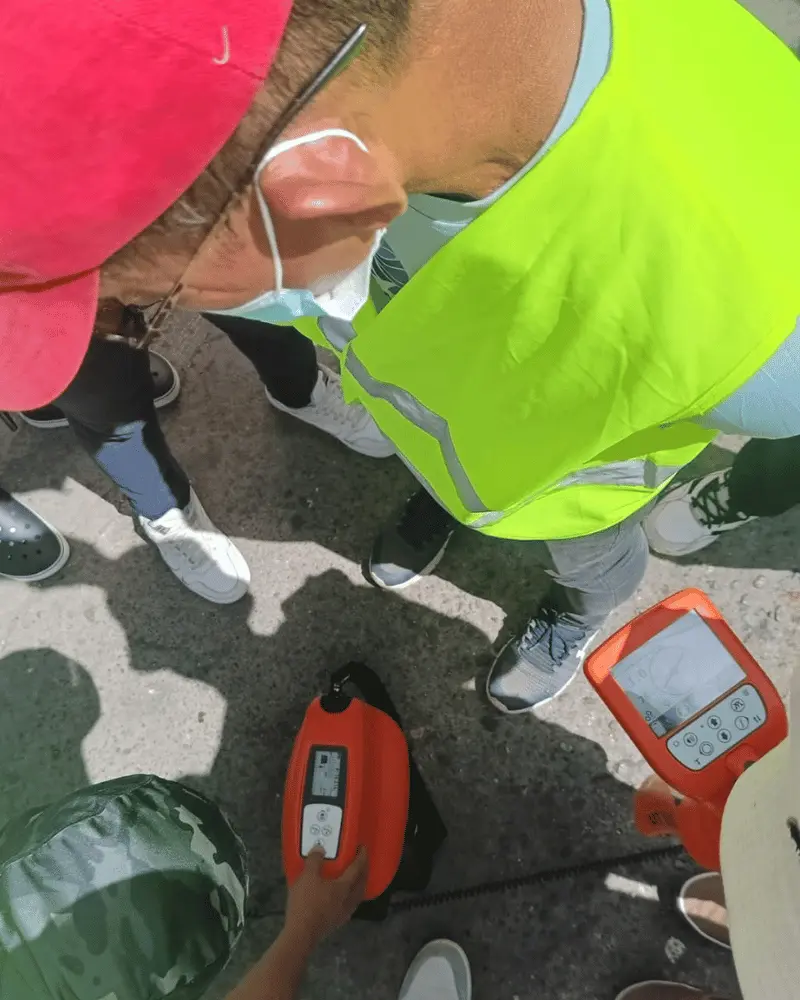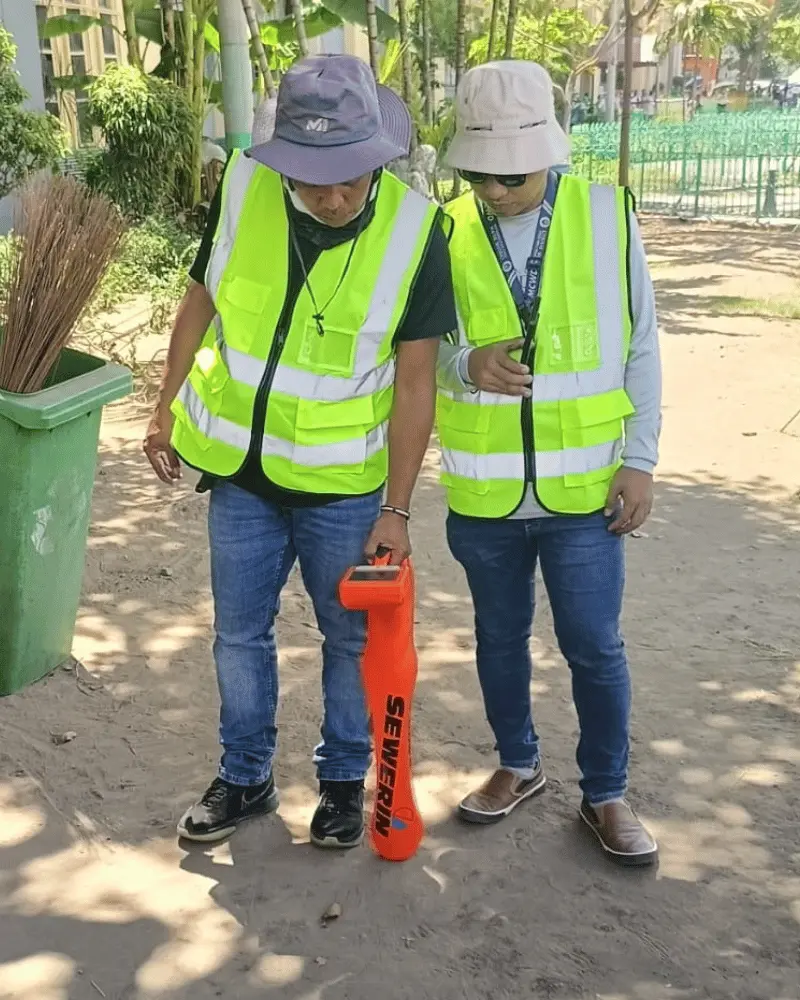The Crucial Role of Non-Revenue Water Management in Water Conservation
- ksamante
- May 16, 2024
- 4 min read
Updated: May 22, 2024

Water is an essential resource that sustains life and fuels development. In the Philippines, effective water management is crucial due to the challenges of rapid urbanization, climate change, and resource depletion. One significant aspect of water management that is often overlooked but critically important is Non-Revenue Water (NRW) management. NRW refers to the water that has been produced and lost before it reaches the customer. This involves activities such as leak detection and management services, pressure management, and metering and data analytics. Integrating NRW management with water conservation efforts can dramatically improve the efficiency and sustainability of our water supply systems.
Understanding Non-Revenue Water (NRW)

Non-Revenue Water refers to water that is produced but not billed to customers. This unaccounted water results from leaks, theft, metering inaccuracies, and unbilled authorized consumption. In the Philippines, NRW levels are alarmingly high, with some estimates suggesting that up to 50% of the water supply is lost before it reaches consumers. Reducing NRW is not only about saving water but also about enhancing the financial viability of water utilities and ensuring sustainable water resources.
The Importance of NRW Management
1. Leak Detection and Management Services
Leak detection is a critical aspect of NRW management. Leaks in the water distribution system can lead to significant water loss. By using advanced technologies and methodologies to detect and locate leaks, water utilities can significantly reduce water wastage. It involve using technologies such as acoustic devices, ground-penetrating radar, and smart sensors to identify and repair leaks promptly. Once a leak is detected, prompt and effective management is necessary to repair the leak and prevent further water loss. This not only conserves water but also reduces the costs associated with water production and distribution.
Benefits to Water Conservation:
- Water Savings: Early detection and repair of leaks prevent water wastage, ensuring that more water reaches consumers.
- Cost Reduction: Reducing the volume of lost water lowers the operational costs of water utilities, allowing for more investment in infrastructure and services.
- Environmental Protection: Preventing leaks minimizes the unnecessary extraction of water from natural sources, protecting ecosystems.
2. Pressure Management
Another important aspect of NRW management is pressure management. Maintaining optimal pressure in the water distribution system prevents pipe bursts and reduces the rate of leakage. By managing pressure effectively, water utilities can extend the lifespan of their infrastructure and conserve water. This is particularly important in areas with aging infrastructure, where high pressure can lead to frequent pipe bursts and significant water loss.
Benefits to Water Conservation:
- Reduced Leakage: Maintaining optimal pressure levels reduces the strain on pipes, decreasing the likelihood of leaks and bursts.
- Energy Efficiency: Proper pressure management reduces the energy required for pumping water, leading to lower greenhouse gas emissions.
- Enhanced System Longevity: Lowering the stress on infrastructure extends the lifespan of pipes and reduces the need for frequent repairs and replacements.
3. Metering and Data Analytics
Accurate metering and the use of data analytics are essential for effective NRW management. It allows water utilities to measure water usage accurately, identify inefficiencies, and implement targeted conservation strategies. Data analytics can provide valuable insights into water usage patterns, helping utilities to identify areas of high water usage and target their conservation efforts more effectively.
Benefits to Water Conservation:
- Accurate Measurement: Precise metering ensures that all water usage is accounted for, reducing discrepancies and identifying unauthorized consumption.
- Informed Decision-Making: Data analytics enable water utilities to make data-driven decisions, optimizing water distribution and conservation strategies.
- Customer Engagement: Providing consumers with detailed information on their water usage promotes awareness and encourages water-saving behaviors.
Integrating NRW Management and Water Conservation
By integrating these NRW management activities, we can create a comprehensive approach to water conservation. Leak detection and management, pressure management, and accurate metering all play a role in reducing water loss and improving the efficiency of the water distribution system. This integrated approach not only conserves water but also improves the financial sustainability of water utilities by reducing the costs associated with water loss.
Here’s how integrating NRW management activities with broader water conservation efforts creates a holistic approach to sustainable water management.
1. Comprehensive Water Audits:
Conducting comprehensive water audits helps utilities understand the extent of NRW and develop targeted strategies to reduce it. These audits should be part of an overall water conservation plan that includes demand management and public awareness campaigns.
2. Community Involvement:
Engaging the community in NRW reduction efforts is crucial. Educating consumers about the importance of reporting leaks, using water efficiently, and supporting utility initiatives can significantly enhance conservation outcomes.
3. Policy and Regulation:
Supportive policies and regulations are needed to enforce NRW management practices. This includes setting targets for NRW reduction, incentivizing utilities to invest in modern technologies, and ensuring compliance with water efficiency standards.
4. Technology and Innovation:
Investing in innovative technologies for leak detection, pressure management, and metering is essential. Continuous improvement and adoption of best practices can lead to significant reductions in water loss.
Conclusion
In conclusion, effective Non-Revenue Water management is a cornerstone of water conservation. It allows us to make the most of our water resources, ensuring that this precious resource is available for future generations. Integrating NRW management activities with broader water conservation strategies not only addresses the immediate challenge of water loss but also contributes to long-term resource sustainability. As we face the challenges of climate change and growing water scarcity, the importance of effective NRW management cannot be overstated.







Commentaires